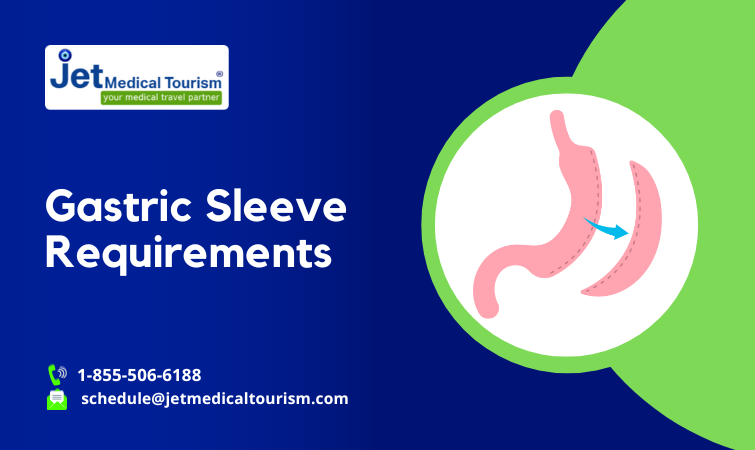Does Medicaid Cover Gastric Sleeve?
Medicaid coverage for gastric sleeve surgery varies by state in the United States. States independently manage Medicaid within federal guidelines, resulting in differing coverage policies for bariatric surgeries like gastric sleeve.
Some states may provide Medicaid coverage for gastric sleeve surgery under specific conditions. Typically, it’s more probable if the surgery is medically necessary due to severe obesity and related health issues. However, eligibility criteria, documentation needs, and coverage restrictions may differ.
How to determine if Medicaid covers gastric sleeve in your state
To determine if Medicaid covers gastric sleeve surgery in your states, you can follow these steps:
1. Contact your state medicaid office
Reach out to your state’s Medicaid office or visit their website to access information about bariatric surgery coverage in your state.
2. Consult a healthcare provider
Speak with a qualified healthcare provider who can assess your eligibility for surgery and provide documentation if it is medically necessary.
3. Confirm eligibility
Ensure that you meet any specific eligibility criteria set by your state Medicaid program. These criteria may include BMI thresholds, documented weight loss attempts, and the presence of obesity-related health conditions.
4. Preauthorization
If eligible, collaborate with your healthcare provider to secure any required preauthorization or approvals from Medicaid before undergoing surgery.
Remember that Medicaid policies may change, so stay informed about your state’s guidelines. Also, consult healthcare professionals and Medicaid representatives for personalized guidance due to the role of individual circumstances and medical necessity in determining coverage.
Related article: How to get weight loss surgery approved
How to pay for gastric sleeve without Medicaid coverage?
Paying for gastric sleeve surgery without Medicaid coverage can be done through a combination of methods, and it’s essential to explore available options:
- Medical Tourism: Consider traveling to a location where the cost of gastric sleeve surgery may be lower than in your home country. For example, Jet Medical Tourism provides access to safe and affordable gastric sleeve in Tijuana and Nuevo Laredo, Mexico. at a fraction of the cost in the United States and Canada.
- Payment Plans: Many healthcare facilities and bariatric surgery centers offer payment plans. These plans allow you to spread the cost of surgery over time, making it more manageable.
- Medical Loans: Consider applying for a medical loan or personal loan to cover the expenses. Some lending institutions specialize in healthcare financing, offering competitive interest rates and flexible repayment terms.
- Health Savings Account (HSA) or Flexible Spending Account (FSA): If you have an HSA or FSA, you can use these tax advantaged accounts to pay for eligible medical expenses, including bariatric surgery.
- Self-Payment: If you have the financial means, you can pay for the weight loss surgery cost out of pocket in your home state or abroad. Be sure to obtain cost estimates from different providers and choose a reputable and experienced surgeon.
Medicaid requirements for gastric sleeve surgery
Medicaid, in the United States, assists individuals with limited income and resources in covering medical expenses. Each state operates its own Medicaid program within federal guidelines. Most states consider specific criteria when assessing eligibility for Medicaid coverage of gastric sleeve surgery, with requirements varying.
Some general principles often apply to Medicaid coverage for bariatric surgery, including gastric sleeve surgery.
- Body Mass Index (BMI): Medicaid may cover gastric sleeve surgery for individuals with a BMI of 40 or higher, or a BMI of 35 or higher with obesity-related health conditions such as type 2 diabetes, high blood pressure, or sleep apnea.
- Documented Attempts at Weight Loss: Certain Medicaid programs may demand documentation of prior efforts in medically supervised weight loss programs.
- Physical Health Requirements: Patients might have to show their fitness for surgery, requiring medical examinations and tests to evaluate their health.
- Psychological Evaluation: Medicaid may require a psychological evaluation to ensure the individual’s mental readiness for surgery and the required lifestyle changes afterward.
- Doctor’s Recommendation: A healthcare provider’s recommendation or referral for gastric sleeve surgery may be necessary to qualify for Medicaid coverage.
- Compliance with Program Guidelines: Patients must meet program requirements, attending counseling, support groups, and nutritional classes before and after surgery.
Note that Medicaid policies can change, and coverage criteria can vary across states. So, consult your state’s Medicaid agency or a healthcare professional for the latest information on Medicaid coverage for gastric sleeve surgery.
Conclusion
Gastric sleeve surgery coverage under Medicaid varies by state, with each state managing its own program within federal guidelines. Eligibility often depends on BMI, previous weight loss efforts, and obesity-related health issues.
Medicaid policies and criteria can change, so consult your state’s Medicaid agency or a healthcare professional for the latest information.
If you lack Medicaid coverage, you can explore other financing options like medical tourism, payment plans, medical loans, and using health savings or flexible spending accounts. It is crucial to consider all available options and consult with reputable healthcare providers before making any decisions.



